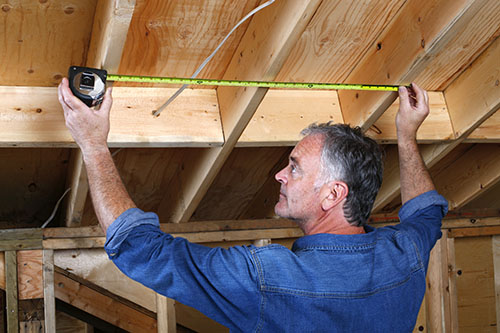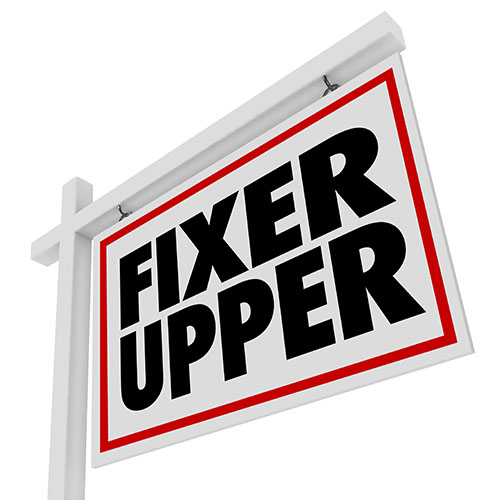 It doesn’t matter where you live, what kind of home you have or what time of year it is. If you’re looking to sell your home quickly, you’ll need to do a better job than other local homeowners who are competing against you. Try these top three tips to secure a sale within 60 days.
It doesn’t matter where you live, what kind of home you have or what time of year it is. If you’re looking to sell your home quickly, you’ll need to do a better job than other local homeowners who are competing against you. Try these top three tips to secure a sale within 60 days.
1) Enhance Its Appearance
When it comes to selling your home, looks are everything. If the appearance of your home is impressive, it will be more inviting to potential buyers. Remove any items that make the home distinctly yours, such as family photos, kids’ toys, or personal items. Ensure that every space is meticulously clean and clutter free to demonstrate that it is a well-kept property.
It is also extremely beneficial to neutralize the design of your home. Maybe you love the red walls in your living room or the fluffy pink area rug in your bedroom, but this doesn’t leave much room for others’ imagination. Make your home a blank canvas upon which buyers can project their own idea of a dream home.
2) Price Wisely
While everyone would love to sell their property for more than market value, inflating your asking price could delay a sale. Research the asking prices of comparable properties in your neighborhood and consult a reputable real estate professional for advice.
There are several other strategies you can use to price your home for a quick sell. Psychologically, certain prices are more attractive to buyers even if there’s marginal difference; a home priced at $599,000 is more attractive than a home that’s priced at $600,000. Although there’s marginal difference between these two prices, the home that’s priced just under the century mark will likely sell quicker.
3) Go The Extra Mile
One of the best ways to make your home stand out from the competition is to offer something that no one else is. Whether it’s high quality photos or a video tour of your home, your listing can provide viewers with a unique look at your property that encourages them to become attached to it right away.
Several other incentives can be offered to help you close quickly, such as including home appliances and transferring your warranties over to the buyer. You can also offer to cover their closing costs, either partially or fully, which is another financial perk that will set your home apart from the rest. Everyone likes a gift-with-purchase, but few sellers offer them.
Need more advice on how to sell your home within 60 days? Speak to your trusted real estate professional today to learn more about custom solutions for selling your home.
 Last week’s economic news included the NAHB Housing Market Index, Commerce Department releases on housing starts and building permits issued. Weekly reports on mortgage rates and new jobless claims were also released.
Last week’s economic news included the NAHB Housing Market Index, Commerce Department releases on housing starts and building permits issued. Weekly reports on mortgage rates and new jobless claims were also released. We all want to sell our homes at above asking price, but what is it that makes a seller succeed at this? Here’s our expert advice on how you can sell your home above the asking price.
We all want to sell our homes at above asking price, but what is it that makes a seller succeed at this? Here’s our expert advice on how you can sell your home above the asking price. According to the National Association of Home Builders, August home builder sentiment met analyst expectations and rose by two points to a reading of 60; July’s reading was revised downward to 58. Two out of three components used in calculating the Home Builder Index were higher. Builder sentiment concerning current housing conditions rose two points to 65. Builders were also more confident about housing market conditions within the next six months; August’s reading was one point higher at 56. Builders were less confident about buyer traffic in new housing developments. August’s reading slipped one point to 44.
According to the National Association of Home Builders, August home builder sentiment met analyst expectations and rose by two points to a reading of 60; July’s reading was revised downward to 58. Two out of three components used in calculating the Home Builder Index were higher. Builder sentiment concerning current housing conditions rose two points to 65. Builders were also more confident about housing market conditions within the next six months; August’s reading was one point higher at 56. Builders were less confident about buyer traffic in new housing developments. August’s reading slipped one point to 44. A good credit rating is built on a number of financial factors including paying your bills on time and the length of your credit history, but loans can also be a source of bolstering your credit score in a positive way. While this means that loans can actually be a good thing, there are also the kinds of loans that can have a damaging impact on acquiring a mortgage. If you’ll soon be pursuing your own home purchase, here are some loans that may have a negative impact.
A good credit rating is built on a number of financial factors including paying your bills on time and the length of your credit history, but loans can also be a source of bolstering your credit score in a positive way. While this means that loans can actually be a good thing, there are also the kinds of loans that can have a damaging impact on acquiring a mortgage. If you’ll soon be pursuing your own home purchase, here are some loans that may have a negative impact. There was a time when it was possible to acquire a mortgage shortly after filing for Chapter 7 bankruptcy, but with the shifts in the financial sector, the timeline on such a mortgage approval has changed in recent years. If you’re currently undergoing a Chapter 7 bankruptcy and are wondering how this will impact home ownership, here are the basics on this type of bankruptcy and what it may mean for you.
There was a time when it was possible to acquire a mortgage shortly after filing for Chapter 7 bankruptcy, but with the shifts in the financial sector, the timeline on such a mortgage approval has changed in recent years. If you’re currently undergoing a Chapter 7 bankruptcy and are wondering how this will impact home ownership, here are the basics on this type of bankruptcy and what it may mean for you. Last week’s economic news included reports on job openings, retail sales and recurring reports on mortgage rates and new jobless claims. Job openings and hiring increased, which provided further evidence of stronger economic conditions. Retail sales were flat in July, new unemployment claims dropped and mortgage rates changed little.
Last week’s economic news included reports on job openings, retail sales and recurring reports on mortgage rates and new jobless claims. Job openings and hiring increased, which provided further evidence of stronger economic conditions. Retail sales were flat in July, new unemployment claims dropped and mortgage rates changed little. In a hot market it’s easy to be blinded by the competition and succumb to the pressure to make an offer on a home before you’ve adequately assessed it. If you’re looking to buy a home this summer, use these four tips to uncover hidden flaws before you put your offer in.
In a hot market it’s easy to be blinded by the competition and succumb to the pressure to make an offer on a home before you’ve adequately assessed it. If you’re looking to buy a home this summer, use these four tips to uncover hidden flaws before you put your offer in. Fixer uppers can come with huge price benefits and opportunity, as well as problems. Make sure you understand what you’re getting yourself into before you purchase a home that needs significant restoration.
Fixer uppers can come with huge price benefits and opportunity, as well as problems. Make sure you understand what you’re getting yourself into before you purchase a home that needs significant restoration. If you want something hands-on to do this summer, look no further than the outside of your house. There are many reasons to refresh the paint job on your house, including increased protection against weathering, and increased curb appeal. Whatever your reason, read on to learn just what you’ll need, and need to do, to paint your home’s exterior.
If you want something hands-on to do this summer, look no further than the outside of your house. There are many reasons to refresh the paint job on your house, including increased protection against weathering, and increased curb appeal. Whatever your reason, read on to learn just what you’ll need, and need to do, to paint your home’s exterior.